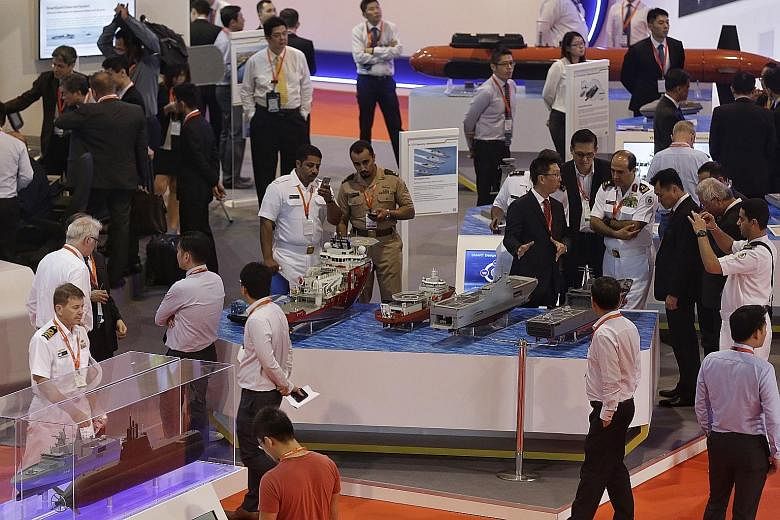Singapore has signed two bilateral agreements with the navies of Thailand and the Philippines on the sidelines of the ongoing maritime defence trade fair, Imdex Asia, said the Ministry of Defence yesterday.
These comprise a revised implementing arrangement with the Thai navy for mutual logistics support for naval ship visits, and a memorandum of understanding with the Philippine navy to share information on white shipping, which includes the deployment of an international liaison officer from the Philippine navy at the Republic of Singapore Navy's Information Fusion Centre.
The announcement came as Senior Minister of State for Defence and Foreign Affairs Maliki Osman urged countries to work together amid an increasingly complex and crowded seascape, through practical cooperation and maintaining open lines of communication.
Countries also need to abide by international agreements and codes of conduct, such as the United Nations Convention on the Law of the Sea (Unclos), an international agreement to preserve order and stability at sea, to avoid unintended conflicts, he said at the International Maritime Security Conference (IMSC), which was held in conjunction with Imdex Asia.
Under Unclos, coastal states are granted Exclusive Economic Zones that allow them to control the economic resources up to 200 nautical miles in their patrimonial sea, while allowing other states the freedom of navigation and to conduct military activities, among other things.
"If any country tries to cherry-pick and restrict such freedoms based on their own interests, it will risk Unclos and the global rules-based order falling apart, and threaten the peace and prosperity that our region has enjoyed over the past decades," said Dr Maliki.
Territorial tensions persist in the East and South China seas, and as the United States and China step up naval deployments in the region, strategic cooperation between the two countries is crucial for the region's stability.
Regional navies are also increasing their capabilities, with defence spending in Asia set to increase by 23 per cent by 2020.
"In such an environment, there is a need to work better with each other, abiding by mutually agreed rules and codes of conduct, to avoid unintended confrontations and accidents at sea," he told more than 400 IMSC participants from navies and coast guards, maritime industries, academia and think- tanks.
In panel discussions, navy chiefs from the US, India, Britain, Australia, Japan, Malaysia, New Zealand and Singapore noted the importance of an international rules- based order and information sharing among navies, which will require a high level of trust.
This is an area that countries have to work on together, especially when it comes to strategic issues, said Singapore's Chief of Navy Lai Chung Han.
"For trust to happen at the working level, we must first start at the leadership level... (And the presence of foreign navies at the IMSC) suggests we can be optimistic about moving forward with these efforts," he added.


